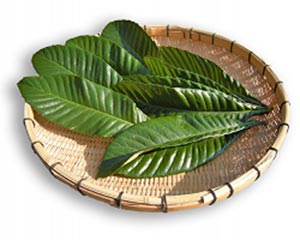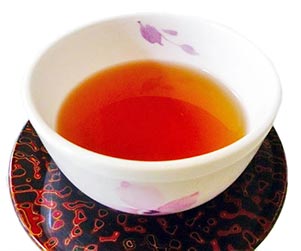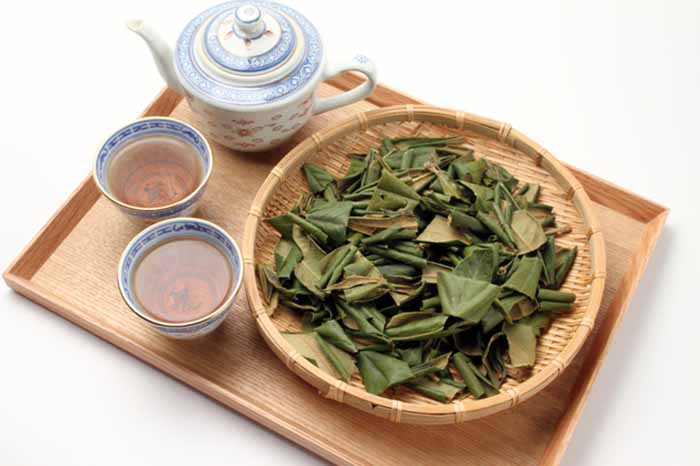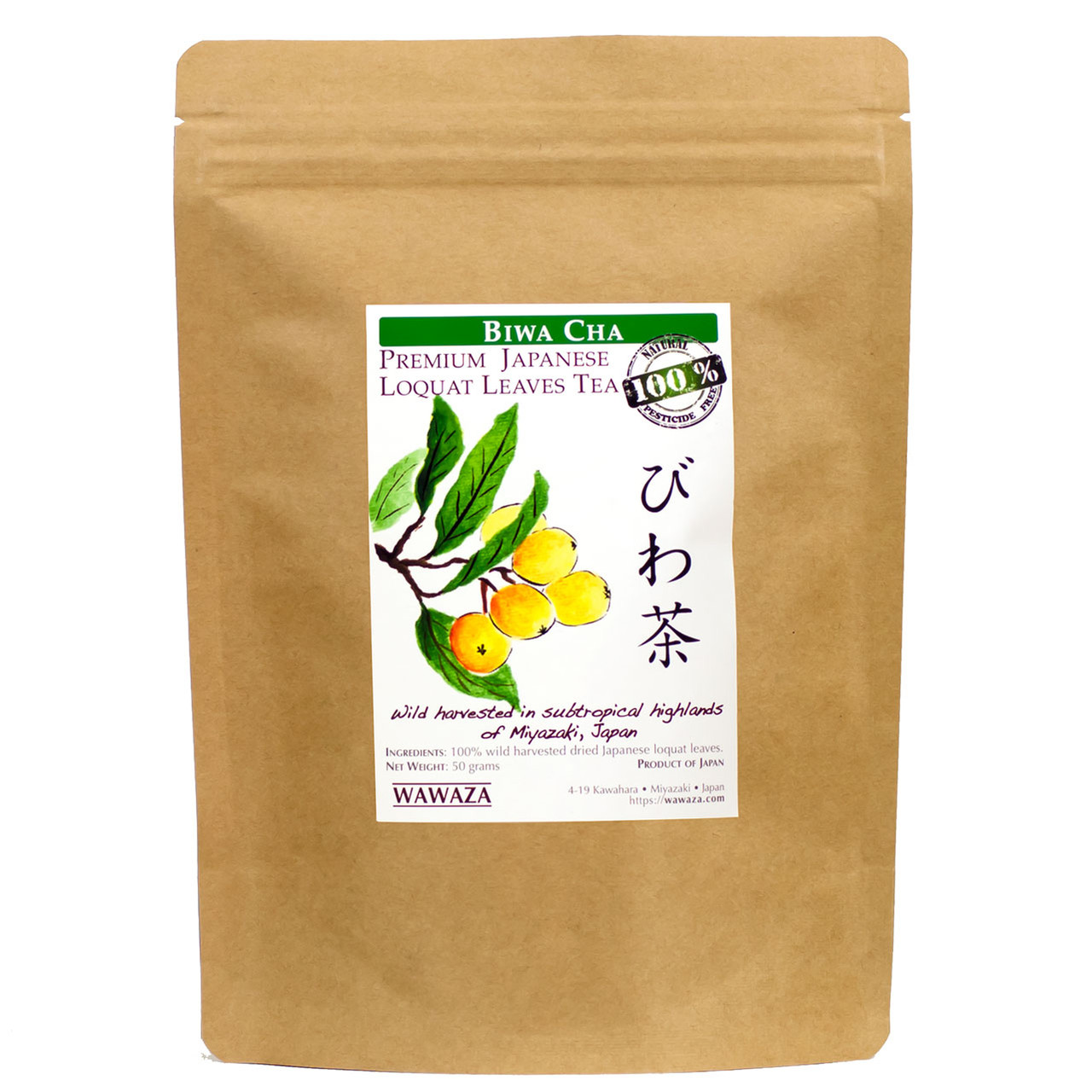Suppose you are looking for a mild, easy to make herbal tea that can boost immunity, heal skin irritations, control blood sugar, and improve general health. In that case, you are in the right place.
 Loquat leaves tea (Biwa Cha) is a traditional Japanese herbal tea made from leaves of the evergreen loquat tree, also know as Japanese Medlar or Japanese plum (Eriobotrya japonica.)
Loquat leaves tea (Biwa Cha) is a traditional Japanese herbal tea made from leaves of the evergreen loquat tree, also know as Japanese Medlar or Japanese plum (Eriobotrya japonica.)
It is a pleasant beverage with earthy notes, a hint of sweetness, and light reddish-brown color.
How to Make Loquat Leaves Tea

The following instructions are for making 4 cups (200 ml each).
- Add 2 tablespoons (5 grams) of dried loquat leaves to a pot.
- Add 4 cups of near-boiling water.
- Brew for about 3 minutes.
- Strain and serve hot, or cold.
Alternative Japanese "Senjiru" Brew Method
Senjiru (煎じる, to infuse) is ;a time-tested Japanese brew method to extract the beneficial compounds locked deep in loquat's leaves and to bring out its pleasantly earthy flavor.
The following instructions are for brewing 4 cups of loquat leaves tea the Japanese traditional way.
- Add 2 heaping tablespoons of loquat leaves to 4 cups of cold water.
- Heat to a full, rolling boil.
- Turn heat down and let simmer for 15 minutes.
- Turn heat off and cool down for 10 minutes.
- Strain and serve.
To get the best out of your loquat leaves, use good quality (but not distilled) water. If using tap water, let it run cold for at least 10 seconds before using.
Benefits of Loquat Leaves
❤ Boost immunity and treat respiratory ailments
❤ Heal skin irritations, redness, and swelling
❤ Decrease blood sugar and combat type 2 diabetes
❤ Lower cholesterol and improve heart health
Loquat leaves have been used in traditional Japanese and Chinese medicines with beneficial effects in treating numerous diseases.
Current research shows that loquat leaves contain potent antioxidants and polyphenols that can boost general health, improve respiratory ailments, lower blood lipid and sugar levels, and alleviate inflammatory skin conditions, including atopic dermatitis (eczema), among other benefits.
Loquat leaves are listed for their health benefits in Japanese Pharmacopoeia (Nippon Yakkyoku-hō,) the official record of approved medicinal herbs, published by the Government of Japan since 1886.
REFERENCES
- Japanese Pharmacopoeia—17th Edition. Japan Pharmaceuticals and Medical Devices Agency
- Anti-inflammatory and Antitumor-Promoting Effects of the Triterpene Acids from the Leaves of Eriobotrya japonica—Biological & Pharmaceutical Bulletin. 2005 Oct;28(10):1995-9.
- Antitumor activity of compounds isolated from leaves of Eriobotrya japonica—Journal of Agricultural and Food Chemistry. 2002 Apr 10;50(8):2400-3.
- Studies on constituents of triterpene acids from Eriobotrya japonica and their anti-inflammatory and antitussive effects—Journal of Chinese Pharmaceutical Sciences 38(10):752-757, Oct 2003
- The antitussive, expectorant and anti-asthmatic activities of triterpene acids of loquat leaves in mice and guinea-pigs—Acta Universitatis Medicinalis Anhui, 2006
- Hypoglycemic effects of sesquiterpene glycosides and polyhydroxylated triterpenoids of Eriobotrya japonica—Planta Medica 1991, 57(5):414-416
- Tormentic Acid, a Major Component of Suspension Cells of Eriobotrya japonica, Suppresses High-Fat Diet-Induced Diabetes and Hyperlipidemia—Journal of Agricultural and Food Chemistry, 2014, 62 (44), pp 10717-10726



